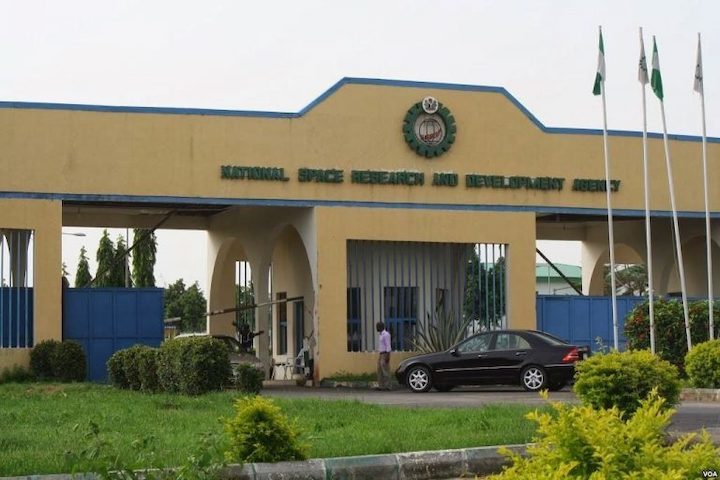7.06.2020

National Space Research and Development Agency (NASRDA) Headquarters in Abuja.
The recently inaugurated leadership of the National Space Research and Development Agency (NASRDA) led by Dr Francis Chizea has affirmed its commitment to reviewing the National Space Policy and Strategy. The new acting Director-General was appointed in May to consolidate the agency’s operations as well as drive the objectives for establishing the agency.
In an interview with Space in Africa, the Acting Director-General said that one of his first duties would be to set up necessary committees with the approval of the agency’s board and legislative council. The new leadership will revise the space document as a form of an evaluation process that will determine the achievements and failings of the policy and how it tallies with current needs and events.
“One thing I have set out to do in the coming weeks is to review our space policy, the more reason behind it is because this policy was approved 2001 and policies should be reviewed after five years. Currently, things are changing very fast, and there are also some sentences you would want to change or add. So looking at the space policy will entail reviewing all those things detailed in the 25 years road map for the implementation”.
“We have to be able to look at the policy once more and find out where we are in the implementation of that roadmap, and why we weren’t able to implement it to where it should be. We will as well examine and deliberate on how we can overcome all of these hindrances”.
The Nigerian National Space Policy is a program with a 25-year road map tailored towards achieving the development of Space Science and Technology in the country through research and development, capacity-building in various fields of engineering, space science, law, and administration. It was commissioned in May 2000, during the Olusegun Obasanjo administration.
The major thrust of the policy is to vigorously pursue the attainment of space capabilities as an essential tool for the socio-economic development of the nation and the advancement of the quality of life for Nigerians. The tripartite policy focuses on building a Nigerian satellite, launching the satellite in Nigeria, and the pursuit of indigenous creation of rockery vehicle that Nigeria will use for the launch of the spacecraft.
Speaking on the success of the policy, the Acting DG said it made some notable achievements, and it will serve as a futuristic guide to what can be achieved in 25 years.
“We have not been able to achieve some of the goals, but we will review these to push us forward in the right direction. But everyone sets out a road map on what they want to achieve, but that does mean everything must be achieved. It’s giving yourself a very wide target”.
However, the policy has not been all flying colours. In discussing the setbacks encountered by the plan, the DG referenced the yet-to-be inaugurated Nigerian astronaut training. “By now, we should have had our astronauts and other things in place. We have to review and replay how we tend to proceed and get the government involved, and we are working in hands with all committees of the agency. Most of these committees have sat down, and now we are working on how to realign our map”.
While talking about a novel approach to the Nigeria space policy, he said: “what we will do now is by the time we reach every stage is that we will sit down and review it and see why and how we have implemented it in readiness for the next phase.”
Quelle: Space in Africa 2020
